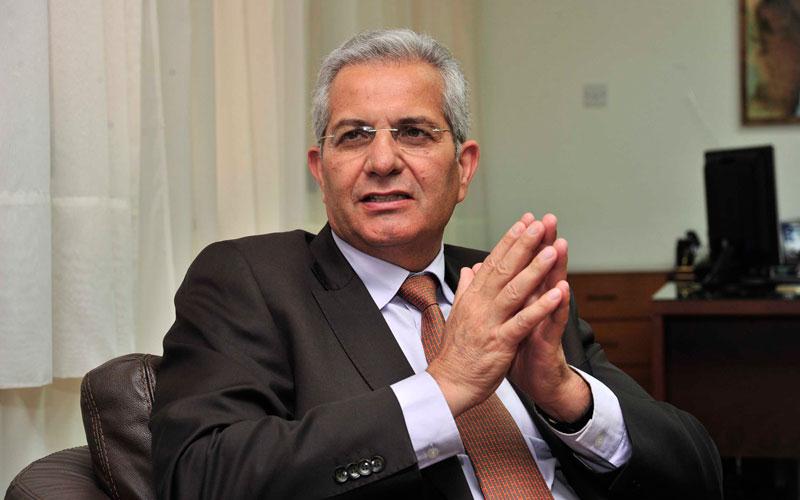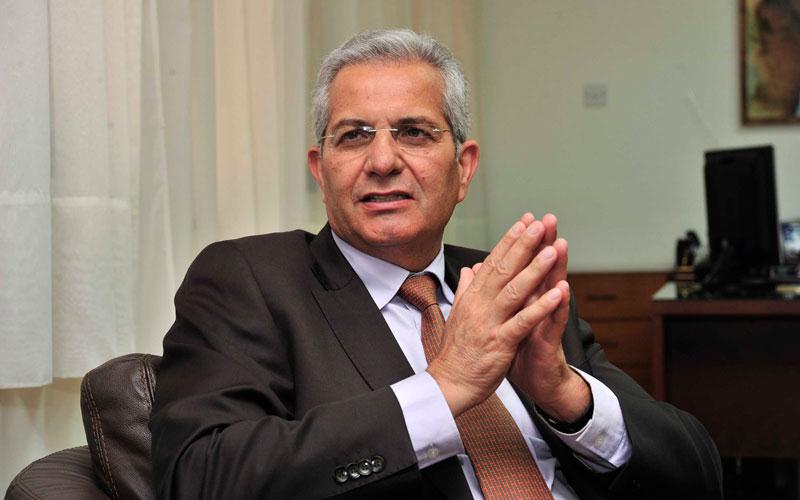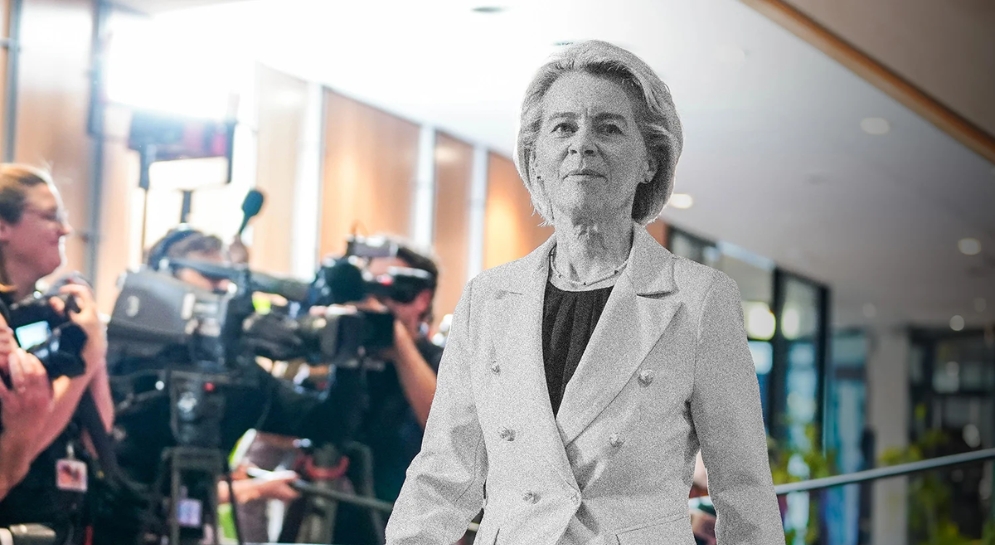
Interview with Andros Kyprianou, General Secretary of the C.C. of AKEL in “KATHIMERINI” newspaper
Sunday 31/5/2014
 – On election night you said that AKEL understood the messages conveyed by the grass-roots and voters of your Party. What messages did they transmit?
– On election night you said that AKEL understood the messages conveyed by the grass-roots and voters of your Party. What messages did they transmit?
– I believe the messages that were transmitted were complex and not one-dimensional. No one should analyse them just from one angle. Among the people of AKEL in particular I must say that there is a greater depreciation towards the European Union. The members and supporters of AKEL reject the policies promoted at EU level and the real democratic deficits; they disagree with the decisions imposed on Cyprus, as well as with the path the EU appears to be heading towards. I am referring to the EU’s involvement in the internal affairs of independent countries, to the interventions of the European Union, together with NATO, in various countries. This is one dimension, but there is another, equally serious dimension, namely people’s frustration and dissatisfaction with the political system in Cyprus, even towards AKEL. We must reflect very carefully on this issue so that we can convince the people with our political activity that AKEL is not one of the same parties and that it is not like all the political parties, but that we are completely different.
– Do you believe that this message was conveyed in the elections?
– We tried to transmit this message, but I believe the climate was such that it did not permit us to convey it everywhere. We therefore have an obligation to work in this direction, first and foremost on a political level, that is to say in elaborating policies that will allow us to convey the message that the people are at the centre of our attention, that we are focused on solving their problems and for them to have a better life. At the same time of course we also need to find the way to convey these messages so that they can reach the people.
– What will be your objective?
– After the elections we need to further continue our contacts with the people. We heard once again from a large number of people complaints that they see us during the election but don’t see us again after the elections. I believe this is unfair for AKEL, because we see them after the elections as well. We will intensify our contacts with the people even more, to hear the peoples concerns, problems and thoughts. The day after the election we said that AKEL will proceed to make a detailed analysis of the result and we want to give a coherent answer to all these questions. We will not handle these issues in a fragmented way. We will find a way to carefully and thoroughly study all these issues and project our own comprehensive proposal on how to address them.
– Judging from your contacts with the people, what is the main complaint expressed by the people and voters of AKEL?
– I would not say that there is only one but many complaints. For example, as I said previously, they consider that we did not act differently from other parties, which I repeat I think is unfair as far as AKEL is concerned.
– You mean on issues relating to meritocracy?
– Yes, on issues of meritocracy too, as well as on matters concerning exercising policy, our approach to problems, etc. Secondly, they believe that we did not defend the people effectively through what has occurred in recent years.
– Are you referring to labour issues?
– To labour issues and much more. But I think it’s better to leave these issues so that we can study them more carefully and thoroughly. We should not draw any hasty conclusions. The election result gives us the time needed to study all these issues and formulate policies in order to respond to them.
– If one sees AKEL’s election results in recent years one ascertains that it registers losses in the absolute number of votes.
– It’s something that concerns us and we will reflect on. This trend in the reduction in people’s participation in elections is a worldwide phenomenon. Regardless however of this fact, this concerns AKEL even more, because we believe that the voters of the Left should be of a different quality and participate more massively in elections. Our own duty as a leadership is precisely to find those ways to convince the voters of the Left to engage on a more mass level in elections. We must work more systematically towards this end. We have not elaborated in a comprehensive manner some proposals that will inspire the people of the Left for a bigger participation in elections.
– Studying the election result, do you observe any of your voters moving to other political party spectrums?
– There is very little, minimal movement. Initial estimates we have made show that those who did not vote AKEL are those who did not go to cast their vote.
– Do you consider the first position won by the Democratic Rally party reflects a vote of confidence in the government?
– No, under no circumstances. I want to remind you that in the 2009 European elections AKEL, as a ruling party, recorded its highest percentages ever. Something similar happened today with the Democratic Rally party, who cooperated in these elections with the European Party EVROKO (Note: a right wing conservative party which won almost 4% in the 2011 parliamentary elections). We should not forget this, no matter what is being said. The presence of the President of the European Party D. Syllouris on the candidate list of the Democratic Rally party in essence sends out the message of cooperation between the two parties. Therefore the votes of both parties need to be taken into account when studying the election result. The Democratic Rally party’s assertion that in recent years there have been developments within the European Party, therefore its percentage cannot be calculated is not a convincing argument. Although there have been developments over the years these were precisely against the Left, in the destructive way the opposition acted. The majority of political parties, but a large section of the mass media too, had unleashed a destructive all-out attack against AKEL all these years. Consequently, when we say that AKEL lost percentages we must take into account all these factors.
– This was the first election campaign AKEL waged after the changes in its leadership. Do you take that as a vote of confidence?
– We had a similar result as in the presidential elections that were waged under the previous leadership. This shows that there is a potential to do much better. I would like to clarify something, namely that in AKEL we do not distinguish the leadership of the party on the basis of separate individuals, but based on a political level and policies. Some cadres withdrew and other new cadres were elected, but AKEL’s policies were reaffirmed in the recent Programmatic Congress. I believe we can move forward based on these policies. In my opinion we need to make changes on many levels, starting from the Party Base Organisations up to and including the leadership of the party.
– The election provided an opportunity for a discussion on the future of Europe. The people appear to be dissatisfied.
– The next few years will be very critical for the EU. There are a lot of discussions being conducted on a European level regarding the steps the EU should make for it to address many of the difficulties it is facing. The only country where such discussions are not being conducted is Cyprus where they are more or less prohibited. If someone dares express a different view then they are labelled as “anti-European”. These issues are being discussed in the EU and we need to start a reflection here in Cyprus too about the future and perspective of the EU.




